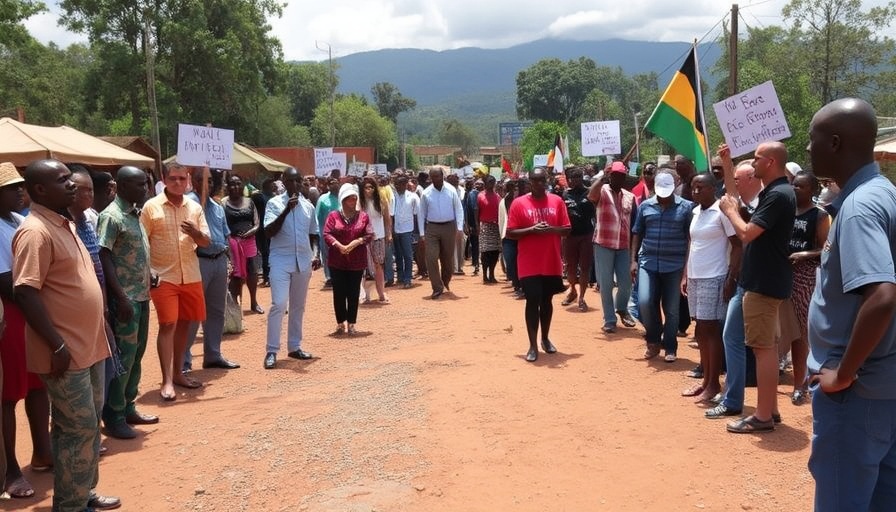
Heightened Tensions: The Blockade of Kenyan Activists
In recent developments, the Tanzanian government's decision to block the entry of Kenyan activists, including prominent figures like Martha Karua, signifies escalating fears within President Samia Suluhu Hassan's administration. The government appears increasingly sensitive to regional dynamics, particularly regarding the high-profile cases surrounding Tanzanian opposition leader Tundu Lissu, who has become a focal point for political dissent.
The Implications for Regional Diplomacy
This blockade raises critical questions about Tanzania's foreign relations and its stance on civil liberties. The refusal of entry for influential activists not only reflects the Tanzanian government's apprehensions but also suggests a significant shift in its approach towards neighboring countries' influences in domestic politics. Observers warn that this move may undermine Tanzania's reputation as a stable partner within East Africa, especially at a time when collaborative efforts are crucial for regional stability and trade.
What This Means for African Governance
The Tanzanian blockade is emblematic of wider trends in African governance where state power is often prioritized over democratic engagement. Such actions might ripple through diplomatic channels, impacting trade relations, particularly with Kenya, as well as broader continental ties with organizations like the African Union. This incident illustrates the precarious balance that African nations must navigate between maintaining sovereignty and fostering cooperative foreign relations.
Future Predictions: A Challenging Path Ahead
As regional tensions rise, one must consider the long-term impact on Tanzania’s internal politics and international relations. With critical elections approaching in various East African nations, the need for stable diplomacy will grow. Policymakers and investors should closely monitor these developments, as the trajectory of governance in Tanzania and its implications for trade and investment can reshape the geopolitical landscape of East Africa.
 Add Row
Add Row  Add
Add 


 Add Row
Add Row  Add
Add 

Write A Comment